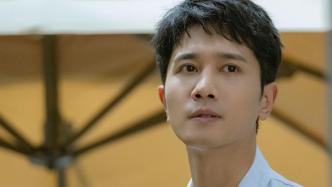
"White Castle" recently ended on Hunan Satellite TV, and Douban finally scored 7 points. Since the broadcast of this drama, the popularity has not been very high, whether it is because the audience has watched too many medical unit dramas, or the actors are not famous enough to make it into the trending searches, generally speaking, according to the level of the drama itself , this result is a bit regrettable, you can book this year's legacy in advance.
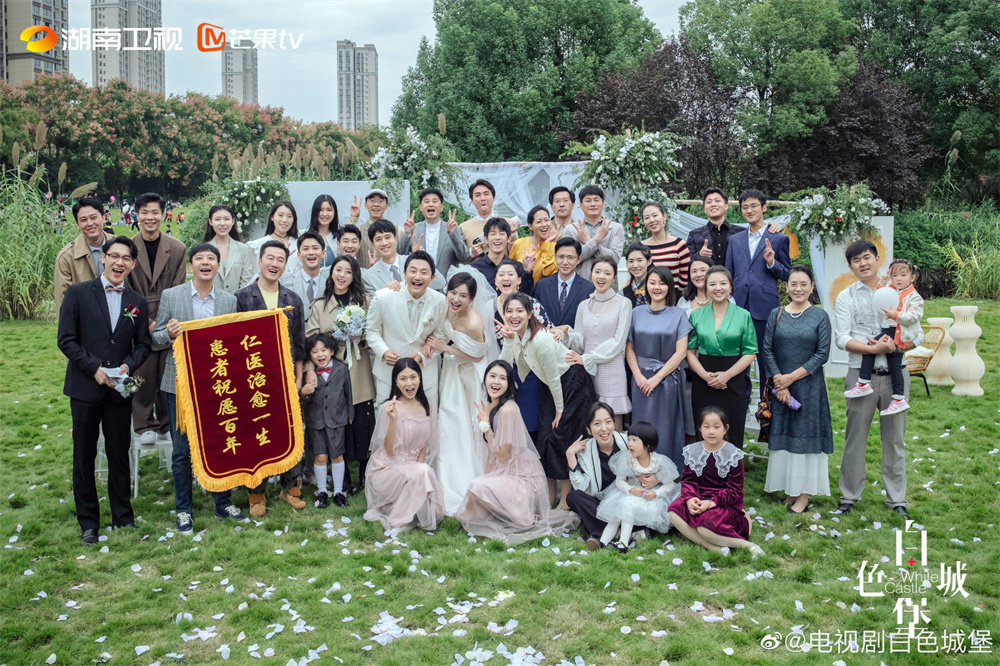
"White Castle" stills
As a medical drama, "White Castle" is still solidly filming the story of the emergency room when the current series of the same type are enough "volume". ), whose master is Louis (played by Tu Songyan); the discreet Liu Fei (played by Xiong Ziqi), whose master is Zu Wenda (played by Gao Xin). The whole episode focuses on the stumbling growth of the four masters and apprentices in the hospital. The doctor goes from nervousness as a novice to facing life and death in pain and then to spiritual growth. "Castle" is remarkable.
Director Yang Wenjun is very open-minded, "We can choose an actor with more traffic, and all problems will be solved. As for what will be fermented in the future, or it has been said that everyone can re-watch this drama in a few years, this is creation. The reader feels very gratified.”
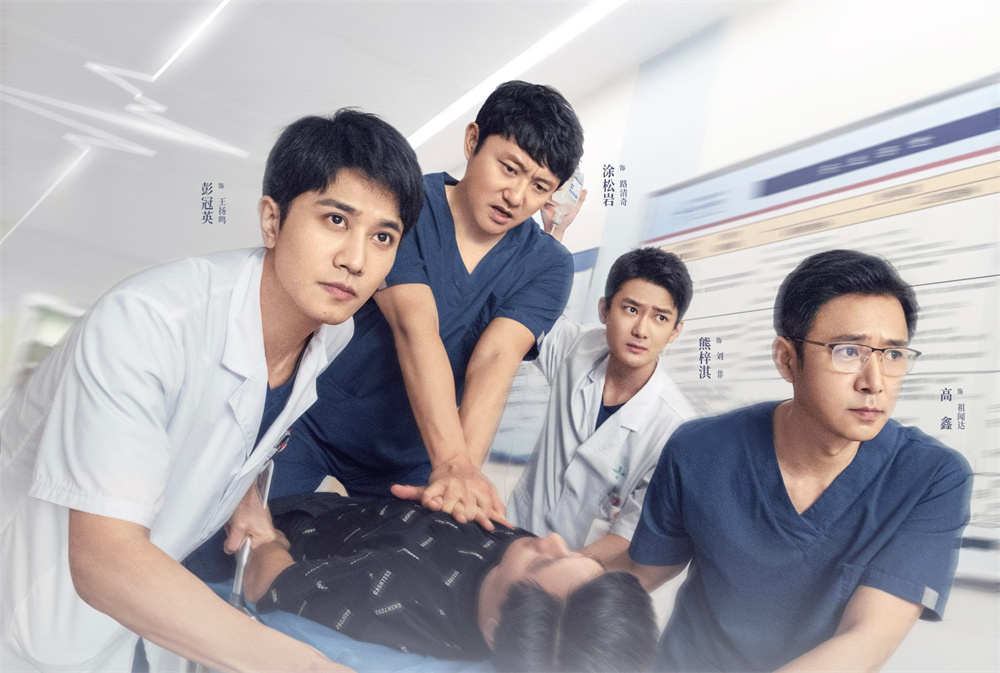
Actors of "White Castle"
doctor's tired
Director Yang Wenjun has a little niece who is a medical student. After graduating from Peking University School of Medicine with a Ph.D., she entered an ideal hospital for internship rotation. When the one-year rotation period was over, she saw Yang Wenjun again. She said that she finally decided to stay in the smoking cessation department of the hospital. Yang Wenjun was very surprised, "Is it easy for you in the past 10 years? In my mind, you should save lives and heal the wounded in the most critical places." The implication is that he is very disappointed. The little niece was very aggrieved. She told Yang Wenjun that after the turn of the year, she found that she was really not suitable to be a front-line doctor, because the emergency department required too much physical strength, and she could only sleep for a few hours a day. You have to sleep. If your physical strength can't keep up, it will delay the patient. Yang Wenjun was very touched at that moment, and it was only then that he realized how tired the doctor was.
Yang Wenjun met a director of the Department of Cardiac Surgery at a gathering of friends. Before the meal started, the director suddenly asked a young man passing by in the restaurant, are you the son of so-and-so? The young man was a little surprised and said that he did know the director. The director said, "Not only did I know your father, I also touched his heart." Yang Wenjun was shocked by the power behind this sentence, and kept remembering, "He touched another person's heart, what kind of friendship."
These are the two most shocking moments when director Yang Wenjun dealt with doctors as a group before filming "White Castle".
Therefore, when he finished reading the original novel recommended by his partner, he immediately decided to adapt it. First of all, the high degree of authenticity was reflected at the beginning of the story. Martha, you are in good health, because you are in the emergency room." This is exactly the same as the feeling of the little niece. Secondly, the novel's description of the profession of doctors is also very three-dimensional, "I imagine that doctors are either meticulous, very serious and responsible, or have some negative things, but the four real doctors are very vividly written like this, and The doctors I have come into contact with are very similar, everyone has their own advantages and disadvantages, and the friendship is more touching, which is rare."
Later, these two moments were written into the script by screenwriter Zhang Lei.
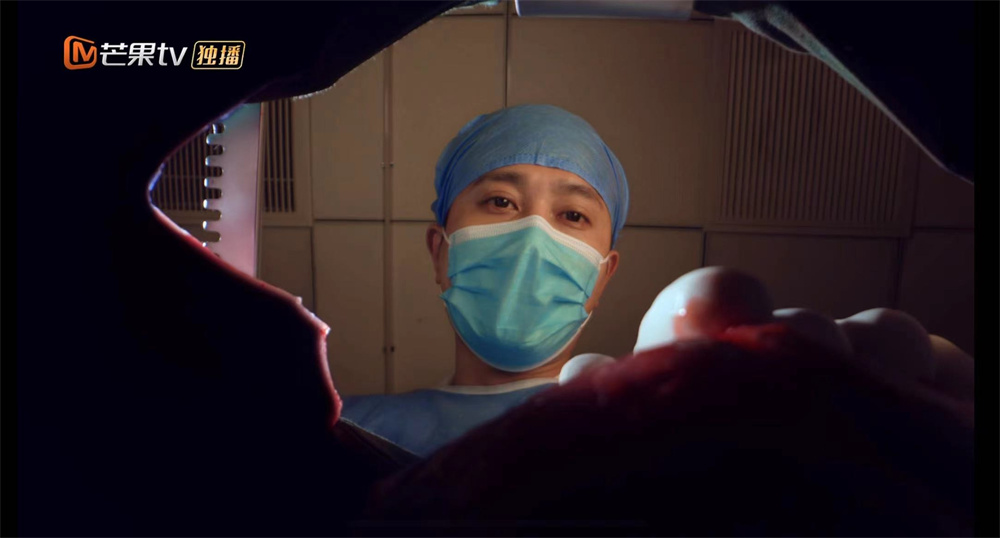
Wang Yangming held Meng Jiaoyang's heart during the operation.
Screenwriter Zhang Lei is from Inner Mongolia, Yang Wenjun's junior sister, and a friend of the original author's life. She gave her advice before the novel was finished, and quickly agreed to take over the task of adapting it. Since the novel itself has prototype characters, Zhang Lei immediately entered Beijing Anzhen Hospital and became a non-staff staff member of the hospital. She worked with the doctor and several prototype characters, became one with each other, and began to experience life.
Generally speaking, screenwriters experience life as a supplementary means to feel the atmosphere, but Zhang Lei has a slow and down-to-earth style. She has been in the hospital for five years, and even experienced several epidemic climaxes with Dr. An Zhen . Five years of eating, working and staying up with the doctors gave Zhang Lei a lot of touch and inspiration. The extremely real lines in the play, the state of the novice doctor, and the perception of life and death all come from the part that Zhang Lei feels the most in these five years .
"In the beginning, I felt the strongest feeling about the life of doctors, especially emergency doctors, because they were tired. They worked with a work intensity that ordinary people could not imagine. A happy career, because it is under the limit of your various fatigues, you must continue to squeeze your physical strength and energy, and you must have a very high IQ and EQ to deal with all unexpected things and your own emotional problems. Originally, we would think that Hard work is a physical concept. Do one thing or two things today, but in fact, the intensity of a doctor’s work is beyond our limit.” And when this kind of exhaustion reaches a certain limit, it can stimulate great energy in the heart. "When your work intensity reaches a certain level, there is a feeling that you want to do your best and die. I can sacrifice my personal rest benefits to save people. I don't have to think about anything, as long as I can save people."
This is also her original intention of writing the protagonist Wang Yangming. The reason why she wants to set the protagonist's enthusiastic personality is to reflect the difficulty of maintaining her original intention. Tiredness may make people no longer serious and meticulous. It is harmless to slack off in other occupations at this time. But the doctor can't relax for a minute, "People can't ask others and themselves with the standard of a complete saint, and then you can feel the real greatness of this job. It's not a moment of high light, it's Every day, month, year, year, and even a moment cannot be neglected. When we are numb to life, old age, sickness, and death, we no longer treat patients with the same enthusiasm and empathy as before. This is a test of human nature or empathy, and it is an eternity of objective existence. The ultimate proposition."
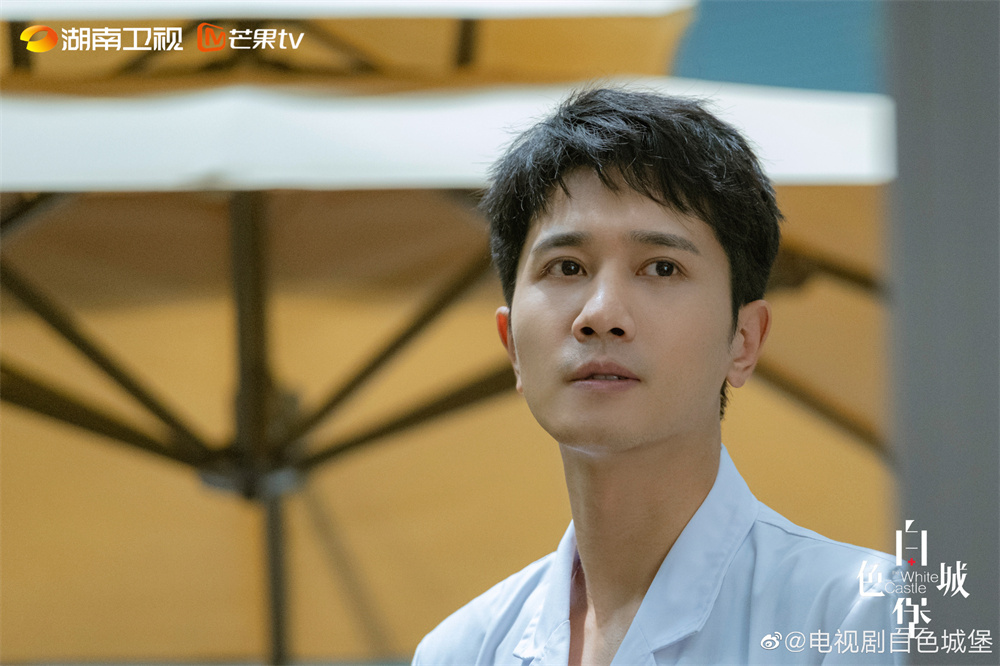
"White Castle" stills
In addition to being tired, the most important thing is that Zhang Lei experienced "birth, old age, sickness and death" in the hospital.
"Although we all feel that the screenwriter has a certain amount of imagination, we can't feel such strong emotions with imagination alone. The four words 'life and death' may be used by everyone, but when you really Seeing a living life disappear in an instant, family members can't stand up, and the tone of speech can't be smooth, the shock is still very big. Once I saw a daughter lying in the ward during an interview, and the doctor told When her mother had no hope of treatment, she still found it difficult to bear. Birth, old age, sickness and death are the softest and most vulnerable places in the human heart, and people will be very powerless and hopeless." Recalling, Zhang Lei even choked up and moved.
"But you always feel that there are many warm and high-spirited things that can support people's lives, and the power of warmth and kindness is also priceless." The warmth and kindness that Zhang Lei said came from the doctor.
Being able to see the prototype of the story is of great help to Zhang Lei, "When you meet a real person, he gives another angle to look at this problem. There will be some new gains in this crossover. Especially many Some colors and flavors, the audience said how this character speaks so awkward, in fact, these are the original ecology of the prototype character." For example, the prototype of Louis, "He can always find the most unexpected places to piss you off, his personality is too distinctive gone."
From the perspective of the current film and television industry, spending five years to experience life and then complete a script is a very extravagant approach. Yang Wenjun and his partner were also anxious, but Zhang Lei insisted on doing so, "Our experience does not mean that you have to watch a new thing, but that you have lived with your protagonists for a long time and can make your own reactions To be able to truly enter into the hearts of the characters. What is more important is to understand an ecology, what do they want for this group of people? What are their fears? What is their life like? What are their parents, brothers and children? The problems in life, how they will face this ecology, after a deep understanding, will make this drama more real-life records. Artistic creation is different from commodity production, there is no way for it to have a clear expectation, it is just a side-by-side experience Let's decide."
Facts have proved that these five years have added a real texture to the script, the novice doctor’s vomiting after the first operation, the care and feelings that the doctor did not show for the patient, and the psychological problems that will occur in the life of the group of doctors themselves. All are reflected in the play.
After five years in Anzhen Hospital, Zhang Lei concluded, "Sometimes doctors are more noble and great than we imagined, and even have a heroic color, but sometimes they feel that they are ordinary people among us, very humorous, lovely and kind people , the feeling is quite rich.”
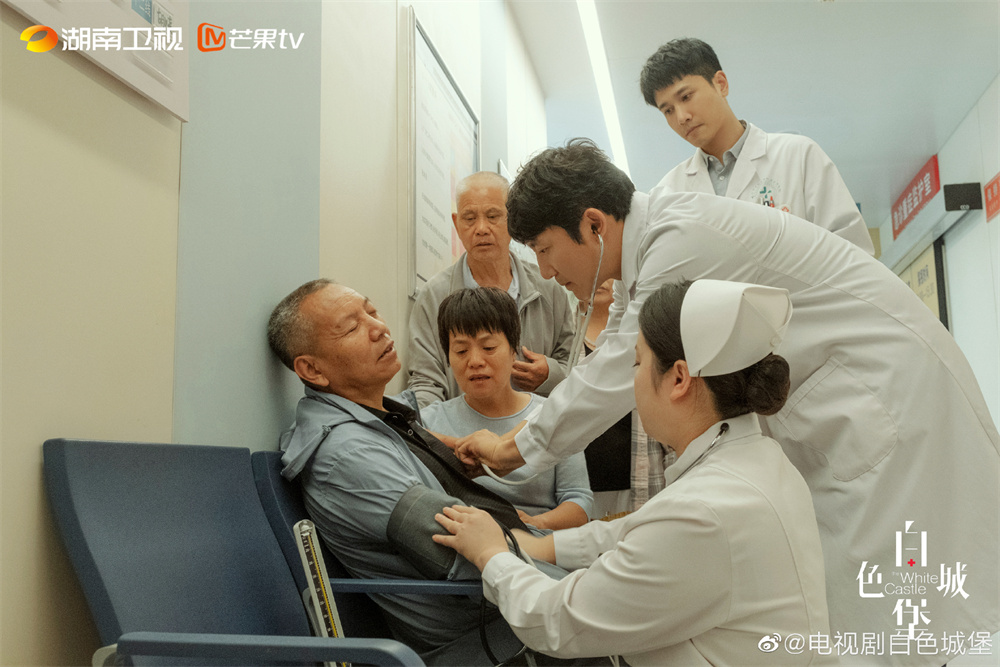
"White Castle" stills
"Möbius Loop" written by the screenwriter
After starting the adaptation, Zhang Lei wrote four or five drafts, mainly because of the two difficulties of style selection and character creation.
"I was stuck for a long time at the beginning. I was looking for the boundary between reality and drama. First of all, the audience will have a perception of medical dramas. We hope to see more content that is in line with social reality and even has a certain depth, but we At the same time, we must also take into account the intensity of drama and emotion, so that people feel that this drama grows out of life, rather than being forced into it by the screenwriter. This degree. For example, we once created a draft, and the hero didn’t just come up to save people. He has been working hard according to the real growth experience of most doctors, but he didn’t do anything amazing. We are in the draft I also tried it in the movie, and found that it might be realistic enough, but it lacked a sense of dramatic excitement."
After going through four or five drafts, Zhang Lei finally decided to restore the original work first, "After all, it comes from the life experience of front-line doctors for many years. As long as the real content can be preserved, it is enough to impress people. It is just based on the characteristics of the TV series. Some cutting and strengthening .”
Zhang Lei believes that the balance between emotional intensity and plot intensity is a problem that all adaptations of film and television will encounter. "After so many years of high-drama plots, TV audiences have particularly high requirements for plot and emotional attributes. It is a challenge to make people feel real and not boring in TV dramas. I feel that drama and life are like a Mobius loop. We move from one time and space to another step by step. How can we make the process smooth and finally To be able to complete the presentation of a spectacle is actually a constant adjustment.”
Talking about whether there are any references to classic medical dramas, Zhang Lei replied that five years of getting along is the best background for the story, and she didn't even do any technical processing. "Using medical staff as teachers and life as teachers does not mean that what others have written cannot be rewritten, because our character relationships are different, and the stories that grow out of it will not be the same."
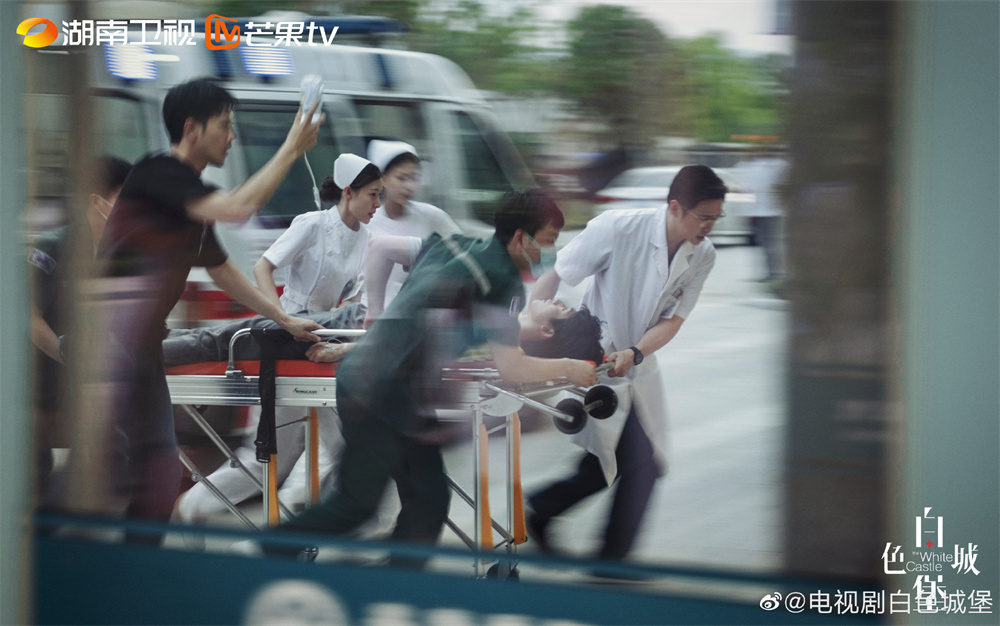
"White Castle" stills
Set up a medical team to pre-shoot real surgery
Some viewers commented that "White Castle" is the professional leader among medical dramas in recent years. This is not only due to the original work, but director Yang Wenjun has also worked hard on it. He formed a three-person director team from the very beginning of filming, of which director Xie Lu was in charge of the medical part. He went to the hospital earlier than everyone else, and got along well with several director-level doctors, large and small, in several hospitals. friend.
Talking about this filming, Yang Wenjun introduced that they had an innovative move in domestic medical dramas, "Before the filming started, Director Xie Lu led the pre-filming team to use mobile phones and DV to film every important operation with doctors. , because intracardiac surgery is difficult to see, and the guide wires are all walking in the blood vessels, so it is more abstract and difficult to understand. Watching the video is the most intuitive. It takes about two or three days to simulate a surgery, and it took them about 20 days Specialize in this one thing, then cut it out and show it to the actors, and the actors can get it right away."
Yang Wenjun said that this process is very time-consuming and labor-intensive, and the previous medical dramas basically did not have this measure. "This pre-shooting method is a bit like shooting an action movie with relatively high requirements."
At the same time, this medical team has been in the crew and is responsible for reviewing each case, "Some are intracardiac, some are combined with extracardiac, and some are combined with other departments. They will appoint different directors to work with us. communicate."
The medical team has made a great contribution to the authenticity. Yang Wenjun gave an example, "Some medical rules are different from Beijing to local hospitals. For example, in the case of the emergency department ward, it is said that there is no right to dispose of the disease, but when we are in the local hospital, Doctors in the emergency department are there to save lives, and if emergency surgery is needed, the doctor in the emergency department will definitely attend without even thinking about it. So in theory, we have passed the assessment of doctors and hospitals at different levels for medical details."
For another example, in the play, the defibrillator leaked in the takeaway brother’s body, and Wang Yangming directly operated on the ambulance. It seemed a bit fake, but this was discussed by the medical team. “There are some discrepancies between what was written at the beginning and what was finally presented. At that time, the experts gave different opinions, including how to restore the wires in the end. They have been overturned and reset back and forth, because the script was written that the ambulance was stuck there, but it is reasonable to say that the chest must be opened immediately. , our director team discussed that since they are already in the ambulance, the urgency to drive the car will be higher, and the visual tension will be stronger. Later, after readjustment, it finally became a car in the ambulance. Surgery. There is an element of ideals in it, but not imagination."
Yang Wenjun believes that it is the high degree of realism in professional details that makes the audience a little more tolerant of the series. When some idealistic situations occasionally appear, the audience will choose to accept them.
The original work is composed of cases one by one. The screenwriter Zhang Lei has not made major changes, but in the past few years, there have been a lot of unit medical dramas, which will not only make the audience feel repetitive, but also easily collide with the cases. What Zhang Lei can do is to adjust the order of the cases, "The audience's appreciation habits also need to be gradual, especially the adjustment of emotional attributes. When you feel that the case is particularly tragic or heavy, you need something soothing. When the plot may be a bit dull , you need something more shocking.”
Yang Wenjun also knows that cases are easy to repeat. He tries to avoid them as much as he can, but there are also some cases that cannot be avoided. The case of a college student playing basketball and eating chewing gum choked his intake pipe, which appeared in other dramas. After he struggled, he chose to keep it. "I said that the appeal seems to be different. I originally wanted to delete that scene, but it still kept the provocation involving Wang Yangming and his master. In fact, the original novel mentioned this case first, earlier than other medical dramas. "
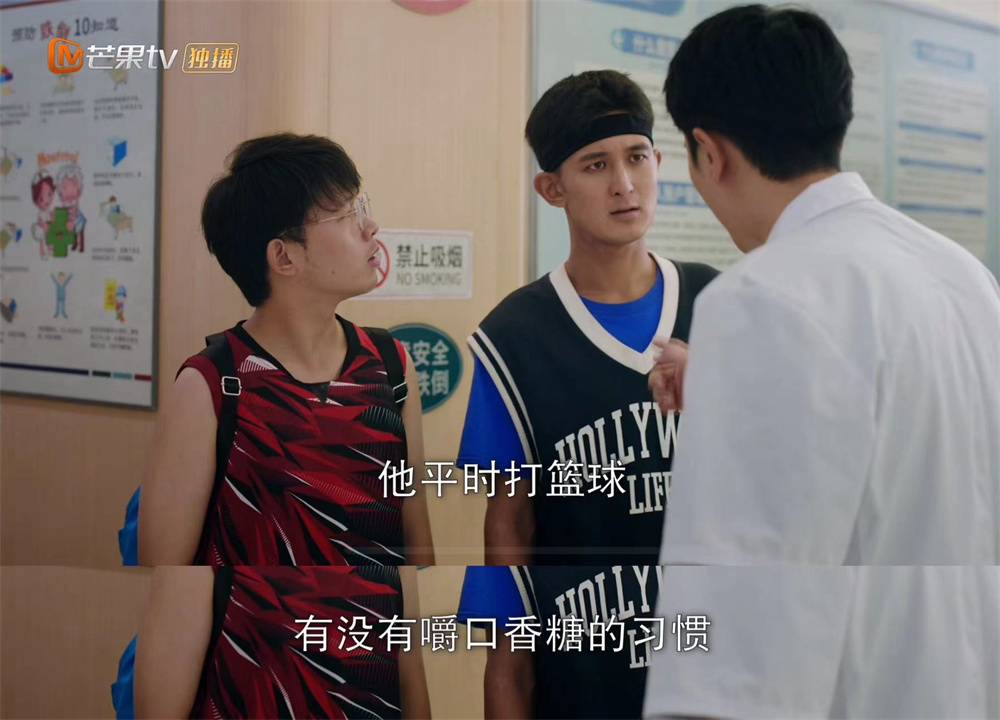
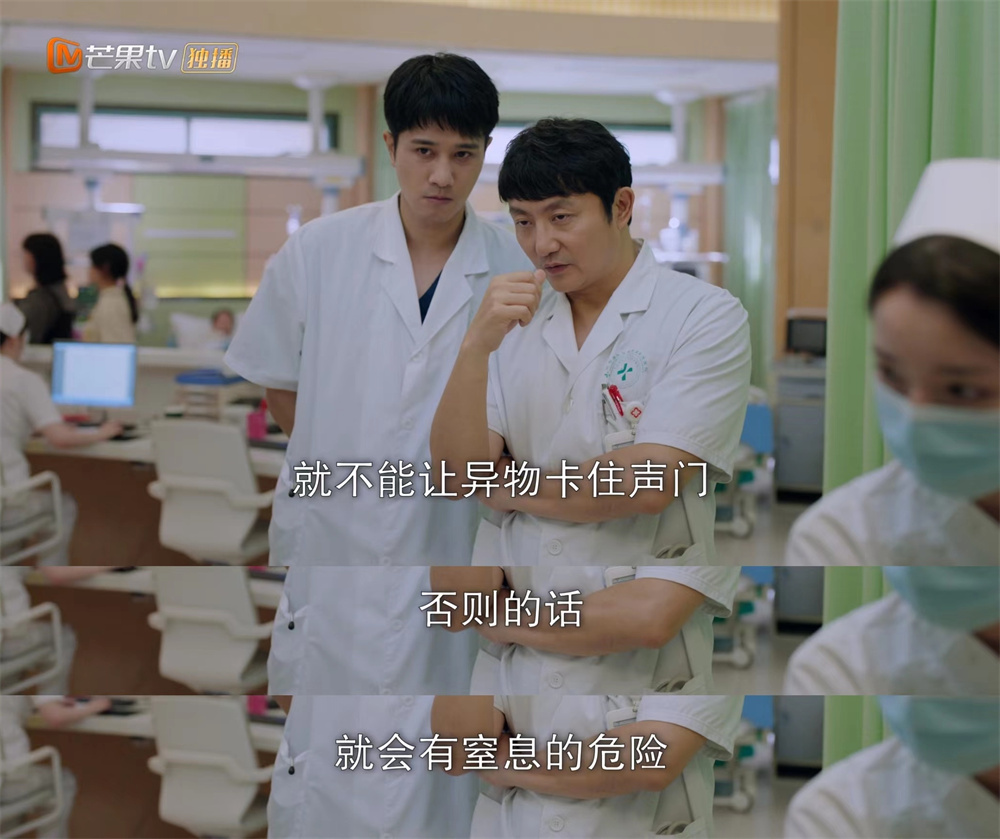
A case of a college student choking on the airway by eating chewing gum while playing basketball.
Thousands of doctors add up, that is Wang Yangming
Wang Yangming is the central protagonist of the whole play, and both Zhang Lei and Yang Wenjun attach great importance to it. Zhang Lei made adjustments to the role of Wang Yangming in the original book. In the original book, this character is a person with full skills, instead of being rampant but lax in practical skills like now. Zhang Lei explained that this adjustment is for the closeness to the audience, "When I was experiencing life myself, I was very curious about how these doctors grew up to be what they are now. The growth story of becoming a doctor is also the growth process of a rookie in the workplace.”
Yang Wenjun believes that Zhang Lei's adaptation of Wang Yangming is a great contribution, and it is also what he thinks is unique in "White Castle" under the current situation of many unit medical dramas." Zhang Lei said that there may not be such a character as Wang Yangming in the doctor, but Thousands of doctors in China add up to Wang Yangming, and each of them has Wang Yangming's excellence and brilliance. She hopes that the whole story has a certain burning power, not just a daily narrative or just sensational. I saw a lot of learning in the comments Medical students, or medical staff, are quite inspired by the character of Wang Yangming, and we really did this.”
In terms of casting, the actors who played the other doctors were all familiar with Yang Wenjun, and it was decided earlier. The only problem is who to find for the protagonist Wang Yangming. "In the novel, Wang Yangming is a head taller than ordinary people, which is very difficult to find. Second, he has to be from the north, and there are very few actors who can meet these requirements.” Later, by chance, Yang Wenjun saw a play by Peng Guanying, his height and feeling were in line, and his acting skills were also explosive. After the meeting, he settled on Peng Guanying.
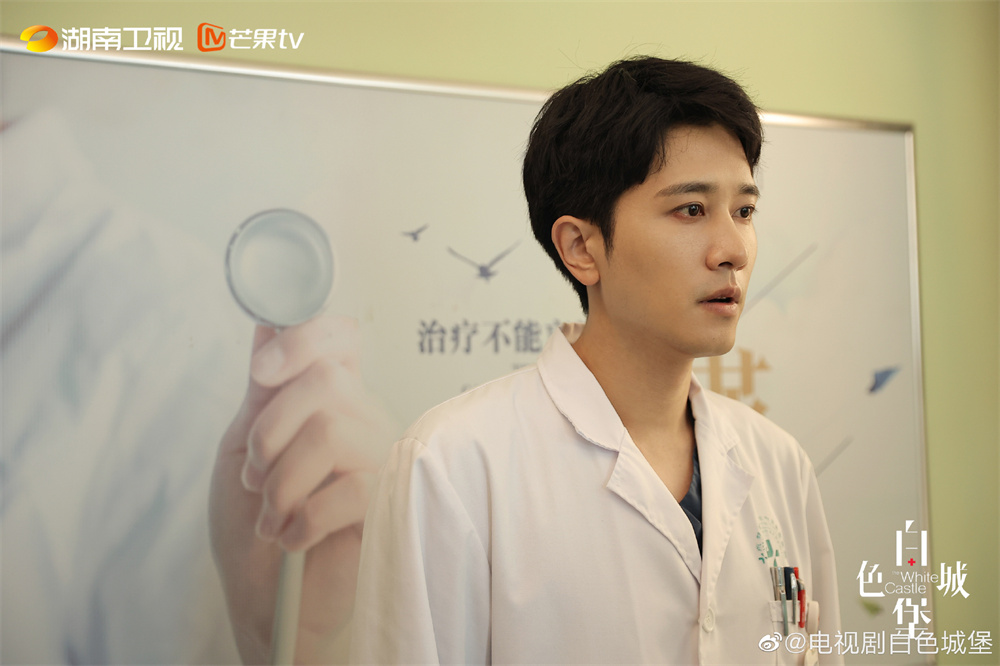
"White Castle" stills
Yang Wenjun recalled that Wang Yangming in his earliest imagination was passionate and fast-paced, but after Peng Guanying entered the group, he gave a different presentation, "There is something more about Wang Yangming in his performance, sometimes a little timid, sometimes A little funny, a little unlucky." On the contrary, Yang Wenjun found it interesting, which made the character fuller.
Yang Wenjun's feelings that he most wanted to put into the play were expressed through the character of Wang Yangming. When filming, in the selected hospital scene, the shape of the roof is particularly like a ship. On the other side is a big hillside with some small houses on the hillside. At night when thousands of houses are lit up, Wang Yangming is on the roof, which can’t help people suffering from cancer The old man, he was very sad, he was like on Noah's Ark, trying to save the people on the other side, he said, but my boat was too small to be dragged. Yang Wenjun recalled that when the director of Anzhen Hospital’s emergency and critical care center attended the premiere, his eyes were moist when he saw this episode, “The director told me how much she wanted to save more people, but the current medical system is not good. The ratio of doctors to patients is also good, maybe we can’t save so many people, and I feel very sad, and I filmed the pain that I wanted to save but couldn’t save. I think this is the best compliment for us.”
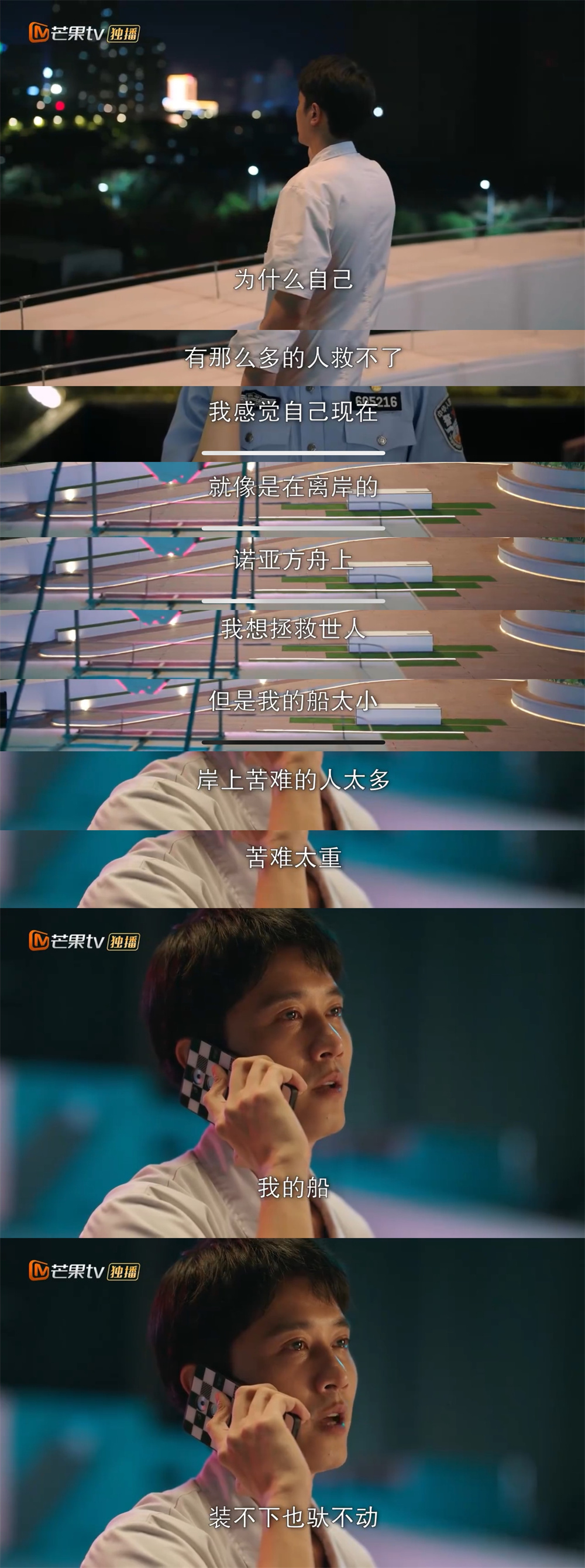
Wang Yangming used Noah's Ark to describe the feeling of wanting to save people.
He and Zhang Lei put faith and hope on this character, which is what he most wants to convey to the audience through this drama, "Real life is sometimes cruel, but we must have a fire in our hearts, no matter in In any position, you must have this fire to motivate you. In my play, the protagonists have the characteristics of romanticism and desperation. I think people live with hope and desperation. For me, this proposition is very important. important."
Realistic themes are more popular in TV dramas nowadays, which are also encouraged by many awards, especially medical dramas, but the protagonist Wang Yangming is indeed romantic. Whether it is keeping the original intention or treating patients, it is an ideal existence. , This is also the original intention of screenwriter Zhang Lei, but this kind of romanticism and idealism does not seem to be well reflected in medical dramas. Yang Wenjun believes that medical scripts do not have to reflect cruelty and reality. "Whether it's an American drama or a Korean drama, there are different types and styles of medical dramas, not just realistic ones, we just chose a more ideal style. The screenwriters have written vivid characters, and the characters are appealing and very appealing. Good." He often reads netizens' comments, and before the broadcast, he was also worried that netizens would criticize some of the ideal parts, but he didn't expect the audience to be very tolerant to them.
"To be honest, our audience is really more picky. For example, it is also a medical drama. In "The Good Doctor", someone fainted in a hall. The doctor directly used spirits to disinfect them, and directly used glass for surgery. People will scold the show like this. So I was also worried that the word of mouth would be lost as soon as it started broadcasting. However, I later found that as long as the other details are true enough and the performance is solid, the audience can accept it. This step of the attempt was done right, a doctor with superb medical skills, a sense of responsibility, and courage in his body, desperate to save lives, touched the hearts of the audience."
The screenwriter Zhang Lei thinks more about this. She doesn’t think idealism is bad. “It’s normal for realistic problems to exist in medical care, but that doesn’t mean it’s right. We should see some fairness and fairness that we yearn for more.” Something just. Doctors’ care for patients is actually reflected in various places in life. We often see that when the family members are completely disturbed, the doctor will hand a chair to the patient’s family members to say a few words, which is not a professional category. Everything you have to say inside will make people feel that life is still very beautiful. It can only be said that idealism is not enough, we want the audience to see how this idealism is realized, even a little bit of realization."
The topic extends to medical dramas that are no longer lovable. Looking at the domestic dramas in recent years, it has been five or six years since the last time medical dramas created a viewing boom. There have been many excellent medical dramas in recent years, but none of them can be reproduced. Trigger a discussion with enough volume, is it a creative bottleneck or a change in the audience's aesthetics?
Yang Wenjun believes that, first of all, it is difficult to develop the contradiction between doctors and patients. If it is not done well, it will really arouse the contradiction. I also don’t want the final filming to put pressure on the doctors.” Some commenters mentioned that the series edited the original works, and Yang Wenjun explained that this was based on the current public opinion environment, “We talked about many cases, but finally gave up. For example, sometimes your intention is like this, but once it is widely disseminated, the social influence will be different. Finally, after public opinion ferments, it will have a great impact on the entire industry, so we are relatively strict. "
Secondly, the current medical dramas have been criticized by some audiences for adding emotional lines. This is indeed a change in the audience's aesthetics, but the screenwriter Zhang Lei believes that it should not be overcorrected. "We are sometimes a little dazed, but in fact, emotions are also part of each of us in real life. A part, even this one, can be well explored, but it is not true to avoid it.”
Yang Wenjun was also quite helpless, "Now everyone thinks why don't they all write about medical treatment? Why do they write about family life? Why do they write about love? I think these people are fictional, and they don’t have real life, because in real life, they have marriage, family, love, and life in their age group.” He said that he really didn’t expect the audience to like the first 20 episodes so much. All emotional life has been deleted, but from a practical point of view, only American dramas with 10 episodes in one season dare to do this, "The current film and television companies can't bear it, only by making a big effort can they get so much money. Our filming of this scene is very extravagant, and we didn’t spend much money on the actors, but setting up the scene, light and shadow, and organizing a medical team for pre-shooting, all of these are money.”


